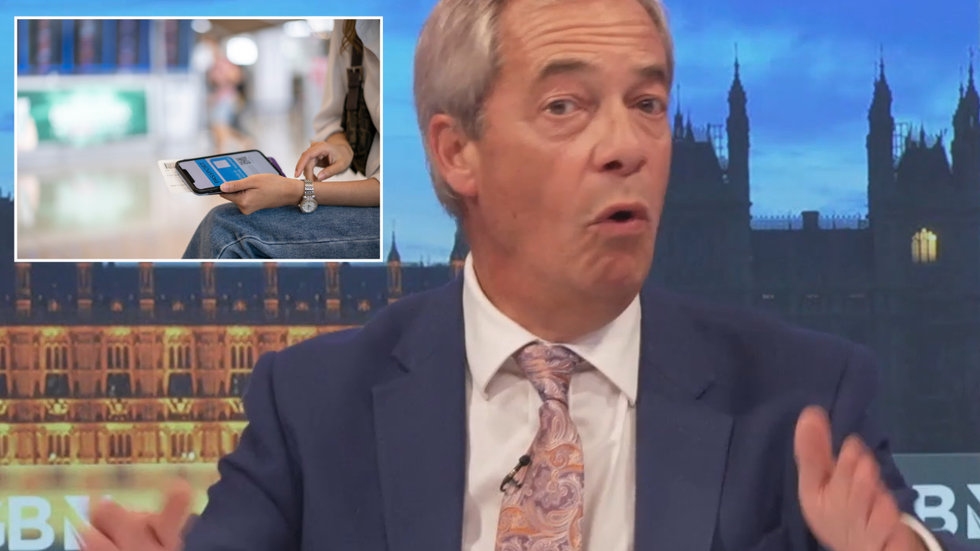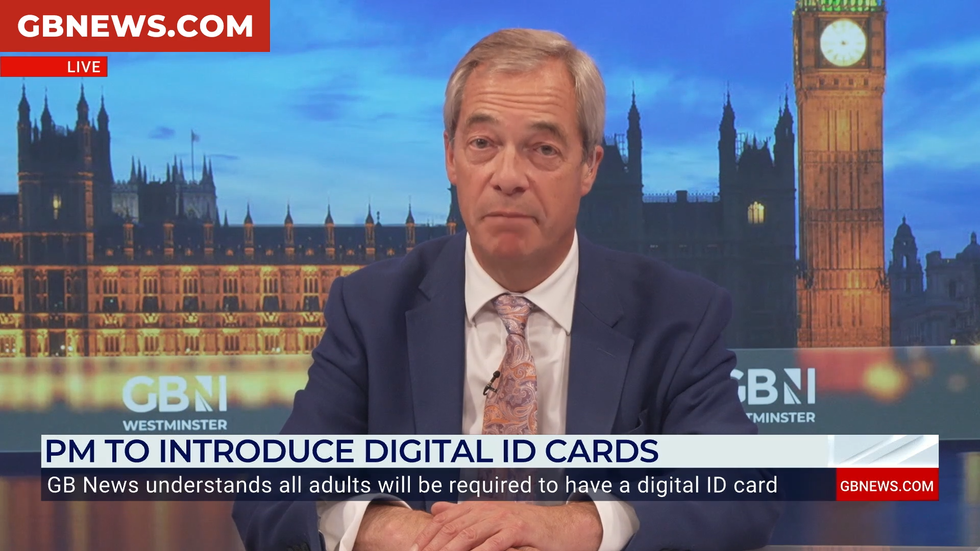Nigel Farage has launched a scathing attack on Government proposals for mandatory digital identification cards, declaring himself “vehemently opposed to this in every single way”.
Speaking on GB News, the Reform UK leader warned that such a system would grant the state unprecedented power to monitor and control citizens’ daily activities.
“The benefits are clear. The state can control every single aspect of your life,” Nigel stated, outlining what he termed the “endless possibilities” of digital ID implementation.
His fierce criticism comes as Prime Minister Keir Starmer prepares to unveil plans for a compulsory “Brit card” system on Friday, aimed at verifying individuals’ rights to live and work in Britain.

The proposed scheme would require all UK adults to obtain digital identification, marking a significant shift in how citizens interact with government services.
Nigel detailed specific scenarios where digital ID could enable government overreach. “They can know where you are at every given moment in time. They see what money goes in and out of your accounts,” he warned during his broadcast.

He suggested authorities might exploit the technology to impose environmental restrictions on citizens. “They can decide ‘you can’t go to Marbella, you’ve used up your carbon footprint for the year’,” Nigel said, acknowledging some might consider his warnings exaggerated.
The system would enable comprehensive surveillance of citizens’ movements and financial transactions, according to Nigel’s assessment.
LATEST DEVELOPMENTS
- Digital ID petition reaches 155,000 signatures as Britons fight back against Keir Starmer’s plan
- SNAP POLL: Are digital ID cards a price worth paying to crack down on immigration? VOTE NOW
- Do NOT buy the immigration ruse. Keir Starmer’s digital ID card is a digital prison – Adam Brooks
He emphasised these weren’t merely theoretical concerns but represented genuine risks inherent in centralised digital identification systems that could fundamentally alter the relationship between individuals and the state.
Nigel drew parallels to coronavirus-era restrictions, citing vaccine passports as evidence of government overreach. “Frankly, for me, I saw enough during the pandemic with vaccine passports. It created a two-tier society of who could travel and who couldn’t,” he explained.

He recalled how unvaccinated individuals faced discrimination during that period. “You were seen as a danger unless you were vaxxed. Our freedoms were taken away in that period like we have never seen before,” Nigel stated.
Beyond civil liberties concerns, he highlighted cybersecurity risks, warning about potential data breaches if hackers accessed the system.
Nigel dismissed government claims that digital ID would combat illegal immigration and underground employment. “We’re told it will stop illegal immigration, it will stop people working in the illegal economy. I don’t believe a word of it,” he concluded.
The Government’s digital ID proposals have sparked widespread opposition from civil liberties organisations. Eight groups, including Liberty, Big Brother Watch, Article 19 and the Runnymede Trust, have cautioned that mandatory identification could prove “uniquely harmful to privacy, equality and civil liberties”.
Big Brother Watch has collected over 101,000 signatures opposing the “BritCard” scheme. The organisations argue the system would fail to address unauthorised immigration whilst driving vulnerable migrants “further into the shadows, into more precarious work and unsafe housing”.
Home Secretary Shabana Mahmood has expressed longstanding support for ID cards, referencing her backing of Labour’s previous attempt to introduce them.
The proposed system would require workers to present digital identification when starting employment, with details verified against a Government database of those entitled to work in Britain.
Our Standards: The GB News Editorial Charter







Follow